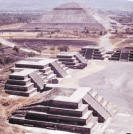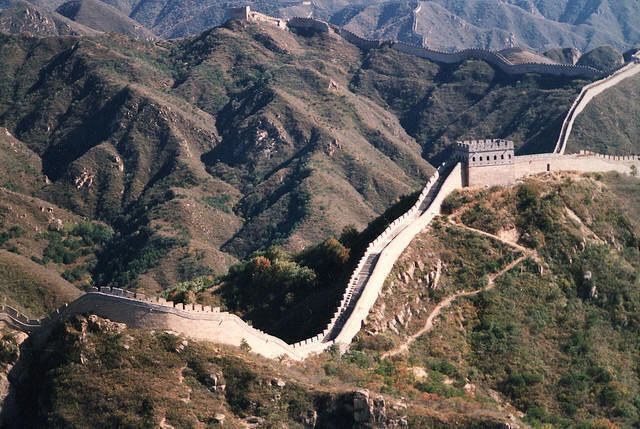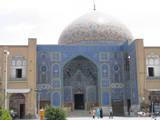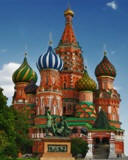THE ANNUAL SEMINAR
Social
Imaginaries and Social Transformation:
Discerning the Dynamics of Reality
August 21-September 22,
2023
Washington
DC Time
Thematic Description
Human history unfolds itself
in time and space marked by unique characteristics. For
instance, in the West, the modern age is characterized by
industrialization, political revolution, religions reformations,
etc., while other parts of the world encountered their own
socio-political and cultural experiences which were
circumscribed by their own social conditions. However, in these
contemporary times, the entire humankind is nevertheless
navigating the technological waves, of which the digital and
Artificial Intelligence in particular are becoming a major
source of concern and reflection.
The unfolding of social and
historical reality bespeaks of something fundamental for our
self-understanding as human beings. As an unfolding of specific
circumstances and situations in specific time and space, history
does repeat itself but not just what went before, rather
continues its movement through various events, big and small, as
emerging manifestations of the dynamic character of the vision
articulated in stories, images, songs, epics, etc., as well as
in laws, political movements, social innovations and
transformations. Events and changes in the real world are always
dramatic, unimaginable, and unprecedented, while philosophers,
scholars, and thinkers of the time always try to catch up with
belated theoretical reflections, analyses, and investigations.
Yet deeper philosophical inquiry and attention to the broader
horizons of understanding the process of social and historical
reality are urgently needed at all times.
As a long-standing tradition, RVP extends its invitation to
philosophers, scholars, and thinkers in different areas of human
knowledge to participate in the ongoing efforts of dialogues and
conversations in order to develop intellectual vantage points
capable of being shared with wider audiences. We take for
granted the ability of the human mind to not only become aware
of one’s own horizon of understanding, but also of
systematically transcending it to integrate the horizons of
other people and cultures and, thus, to develop a reflexive
awareness or historical consciousness. The dynamics of social
and historical reality indicates that the human being is never
bound by just one specific horizon of understanding but rather
constantly moves in and out in order to achieve deeper and
broader horizons. In this process, new dimensions and
potentialities open to new existential experiences and the
corresponding search for meaning. The fusion of horizons through
dialogues and shared thinking processes enables us to better
understand circumstances that are new and challenging, but also
filled with opportunities for renewed acts of imagination and a
pragmatic re-orientation at both the personal and the societal
level.
The 2023 RVP seminar intends to study some of the major issues
associated with the above-mentioned concerns. It will refer to
Charles Taylor’s interpretation of the social
imaginary, which means (1) “the way of ordinary
people imagine their social surroundings,” (2) “shared by a
large groups of people” if not the entire society, (3) “common
understanding that makes possible common practices,” and (4)
oriented by moral and metaphysical orders. (Modern Social
Imaginaries, 23-25) Accordingly, the 2023 seminar attempts
to deal with a set of questions, such as how social
imaginaries are players in the process of
social transformation and why they are particularly significant
in developing cultural horizons. Furthermore, we purpose to
understand the interaction between social imaginaries and human
actions, the relationship between social imaginaries and human
consciousness, etc. Along with Charles Taylor, we shall take
into consideration the contributions of other major contemporary
thinkers such as G. Bachelard, A. Badiou, C. Castoriadis, R.
Kearney, Jean-Paul Sartre, etc.
The focus of the 2023 seminar is to uncover the depth of the
problem associated with the development of
an understanding of how social imaginaries are significant in
constructing powerful social forces for either transformation or
paralysis in the formation of historical consciousness for new
paradigms in reality. The goal is to
search for the symbolic dimension of our social being and the
concomitant hermeneutical interpretation of narratives and
findings necessary for the emerging of a new culture. Indeed
social and historical events have profound effects in the
interplay of cultures and civilizations in the global world. A
good and workable social order can ensure authentic freedom and
envisage a better, more sustainable future for the entire human
family.
Methodology
The 2023 annual
seminar will proceed with the following characteristics:
1. A group of 15 to 20 scholars from different countries around
the world will be selected to take part in the seminar.
2. As
an interdisciplinary and intercultural initiative, the seminar
shall draw not only upon contemporary capabilities of various
realms of humanities and social sciences but also from the
richness of cultural traditions represented by seminar
participants.
3.
The duration of the seminar will be 5 weeks (August 21 to
September 22, 2023). Participants will be asked to take part in all
seminar sessions during the entire five weeks
in order to develop a well-integrated community of research.
Participants are encouraged to practice mutual understanding in
order to achieve lasting forms of academic friendship and
cooperation.
4. Seminar
participants will be asked to present their well-developed
papers in a time frame to be decided during the seminar. Papers
should focus in a rigorous and innovative manner on the theme of
the seminar. The final version of the paper should reflect the
readings and discussions to be held during the seminar in order
to be considered for publication.
Application for Participation
Since the
pandemic started in early Spring 2020, the 2021 seminar was held
entirely online. However, the 2022 seminar was held both
in-person and online. Some of the 2022 seminar participants will
be selected to come to Washington, DC to take part in the 2023
seminar in-person while the rest will take part online, of whom
will be able to take part in the 2024 seminar in-person, if
qualified.
April 10,
2023 will
be the deadline for the submission of the seminar application by
email to cua-rvp@cua.edu. Notification
of acceptance (or rejection) will be announced April
30, 2023.
Upon confirmation of participation, a preliminary set of
readings will be made available for preparation.
The seminar will
be conducted in English. The 2023 in-person seminar will be held
at the Seminar Room: Gibbons Hall B-12, 620 Michigan Avenue,
North East, Washington, D.C., 20064. Email: cua-rvp@cua.edu;
Telephone: 202/319-6089.
The in-person
seminar participants will be responsible for their own travel
expenses, health insurance, and any other expenses. The
RVP/MCSCV will provide simple room and board for the accepted
participants during the time of the seminar.
Those who are
interested in participating in the RVP 2023 international
seminar should email the following materials (Word and/or PDF
format) to cua-rvp@cua.edu:
1. CV describing
the applicant’s education, professional positions and
activities;
2. List of
applicant’s publications;
3. Statement of
interest and motivation to participate in the seminar; and
4. Abstract
(300-500 words) of the research paper that the applicant intends
to present during the seminar and subsequently submit to RVP for
publication (a basic bibliography must be included).





